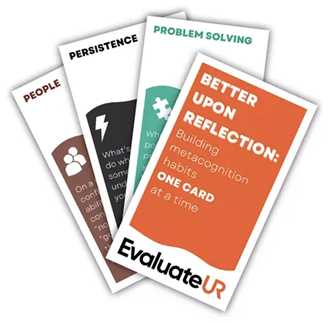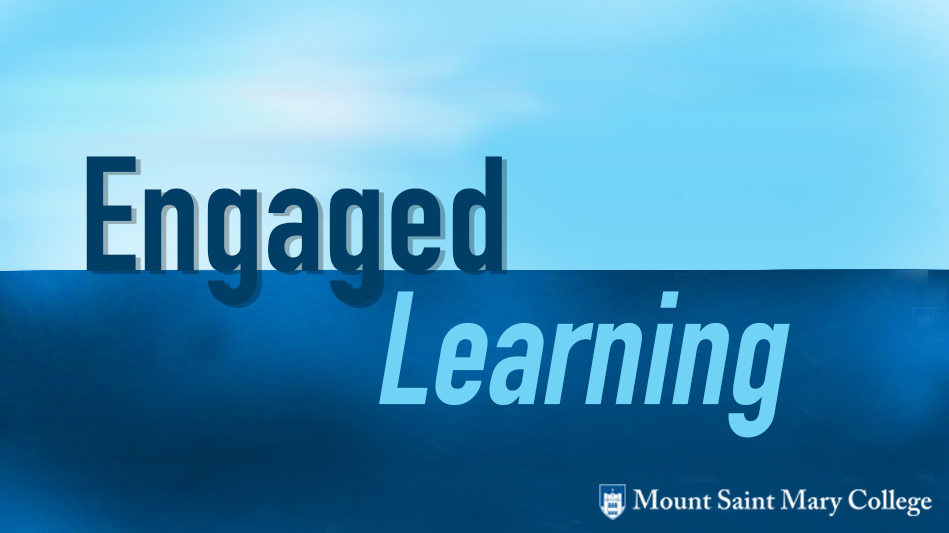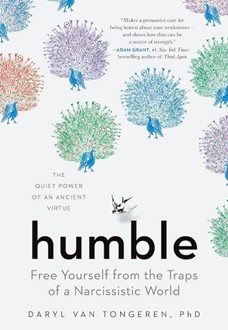by Lauren Scharff, Ph.D., U. S. Air Force Academy*
When we think of integrity within the educational realm, we typically think about “academic integrity” and instances of cheating and plagiarism. While there is plenty of reason for concern, I believe that in many cases these instances are an unfortunate end result of more foundational “learning integrity” issues rather than deep character flaws representing lack of moral principles and virtues.
 Learning integrity occurs when choices for learning behaviors match a learner’s goals and self-beliefs. Integrity in this sense is more like a state of wholeness or integrated completeness. It’s hard to imagine this form of integrity without self-assessment; one needs to self-assess in order to know oneself. For example, are one’s actions aligned with one’s beliefs? Are one’s motivations aligned with one’s goals? Metacognition is a process by which we gain awareness (self-assess) and use that awareness to self-regulate. Thus, through metacognition, we can more successfully align our personal goals and behaviors, enhancing our integrity.
Learning integrity occurs when choices for learning behaviors match a learner’s goals and self-beliefs. Integrity in this sense is more like a state of wholeness or integrated completeness. It’s hard to imagine this form of integrity without self-assessment; one needs to self-assess in order to know oneself. For example, are one’s actions aligned with one’s beliefs? Are one’s motivations aligned with one’s goals? Metacognition is a process by which we gain awareness (self-assess) and use that awareness to self-regulate. Thus, through metacognition, we can more successfully align our personal goals and behaviors, enhancing our integrity.
Metacognitive Learning and Typical Challenges
When students are being metacognitive about their learning, they take the time to think about (bring into awareness) what an assignment or task will require for success. They then make a plan for action based on their understanding of that assignment as well their understanding of their abilities and current context. After that, they begin to carry out that plan (self-regulation). As they do so, they take pauses to reflect on whether or not their plan is working (self-awareness/self-assessment). Based on that interim assessment, they potentially shift their plan or learning strategies in order to better support their success at the task at hand (further self-regulation).
That explanation of a metacognitive learning may sound easy, but if that were the case, we should see it happening more consistently. As a quick example, imagine a student is reading a text and then realizes that they are several pages into the assignment and they don’t remember much of what they’ve read (awareness). If they are being metacognitive, they should come up with a different strategy to help them better engage with the text and then use that alternate strategy (self-regulation). Instead, many students simply keep reading as they had been (just to get the assignment finished), essentially wasting their time and short-cutting their long-term goals.
Why don’t most students engage in metacognition? There are several meaningful barriers to doing so:
- Pausing to self-assess is not a habitual behavior for them
- It takes time to pause and reflect in order to build awareness
- They may not be aware of effective alternate strategies
- They may avoid alternate strategies because they perceive them to take more time or effort
- They are focused on “finishing” a task rather than learning from it
- They don’t realize that some short-term reinforcements don’t really align with their long-term goals
These barriers prevent many students engaging in metacognition, which then makes it more likely that their learning choices are 1) not guided by awareness of their learning state and 2) not aligned with their learning goals and/or the learning expectations of the instructor. This misalignment can then lead to a breakdown of learning integrity with respect to the notion of “completeness” or “wholeness.”
For example, students often claim that they want to develop expertise in their major in order to support their success in their future careers. They want to be “good students.” But they take short-cuts with their learning, such as cramming or relying on example problem workout steps, both of which lead to illusions of learning rather than deep learning and long-term retention. These actions are often rewarded in the short term by good grades on exams and homework assignments. Unfortunately, if they engage in short-cutting their learning consistently enough, when long-term learning is expected or assessed, some students might end up feeling desperate and engage in blatant cheating.
Promoting Learning Integrity by Providing Support for Self-Assessment and Metacognition
Promoting learning integrity will involve more than simply encouraging students to pause, self-reflect, and practice self-regulation, i.e. engage in metacognition. As alluded to by the list of barriers above, being metacognitive requires effort, which also implies that learning integrity requires effort. Like many other self-improvement behaviors, developing metacognition requires multiple opportunities to practice and develop into a way of doing things.
Fortunately, as instructors we can help provide regular opportunities for reflection and self-assessment, and we can share possible alternative learning strategies. Together these should promote metacognition, leading to alignment of goals and behaviors and to increased learning integrity. The Improve with Metacognition website offers many suggestions and examples used by instructors across the disciplines and educational levels.
To wrap up this post, I highlight knowledge surveys as one way by which to promote the practice and skill of self-assessment within our courses. Knowledge surveys are shared with students at the start of a unit so students can use them to guide their learning and self-assess prior to the summative assessment. Well-designed knowledge survey questions articulate granular learning expectations and are in clear alignment with course assessments. (Thus, their implementation also supports teaching integrity!)
When answering the questions, students rate themselves on their ability to answer the question (similar to a confidence rating) as opposed to fully writing out the answer to the question. Comparisons can be made between the confidence ratings and actual performance on an exam or other assessment (self-assessment accuracy). For a more detailed example of the incorporation of knowledge surveys into a course, as well as student and instructor reflections, see “Supporting Student Self-Assessment with Knowledge Surveys” (Scharff, 2018).
By making the knowledge surveys a meaningful part of the course (some points assigned, regular discussion of the questions, and sharing of students’ self-assessment accuracy), instructors support the development of self-assessment habits, which then provide a foundation to metacognition, and in turn, learning integrity.
———————————————–
* Disclaimer: The views expressed in this document are those of the author and do not reflect the official policy or position of the U. S. Air Force, Department of Defense, or the U. S. Govt.



